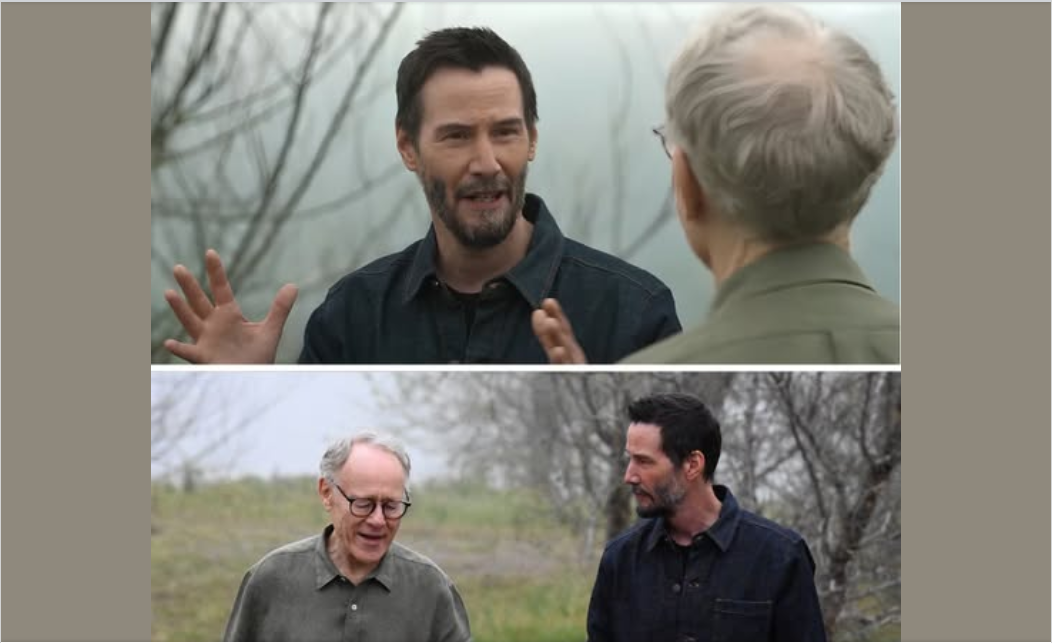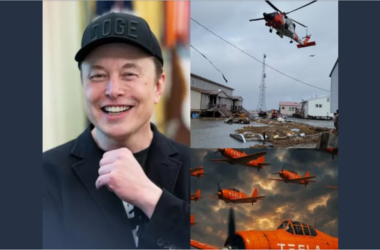
Keanu Reeves, the beloved Matrix star known for his introspective nature and philosophical musings, has sent shockwaves through the intellectual and entertainment worlds with his latest venture. In a bold departure from his blockbuster roles, Reeves has joined forces with controversial author and researcher Graham Hancock for Ancient Apocalypse Season 2, a Netflix series that challenges the very foundations of human history. The actor’s involvement in this provocative exploration has ignited curiosity and debate, raising questions about whether our understanding of the past is incomplete—or even deliberately obscured.
Reeves, long admired for his humility and openness to unconventional ideas, has always harbored a suspicion that the official timeline of human history doesn’t quite align. His curiosity about humanity’s origins, shaped by his interest in Buddhism and existential questions, led him to Hancock’s work, which posits that an advanced civilization may have existed hundreds of thousands of years ago, only to be erased by a cataclysmic event. This theory, while dismissed by mainstream archaeology, resonates with those who question the linear narrative of human progress.
In Ancient Apocalypse Season 2, Reeves embarks on a global quest alongside Hancock, traveling to enigmatic sites in New Mexico, Peru, and Brazil. These locations, rich with ancient ruins and unexplained artifacts, serve as the backdrop for their investigation into a potential lost civilization. The series explores megalithic structures, geological anomalies, and oral traditions that hint at a sophisticated society predating known history. Reeves’ presence brings a relatable everyman quality to the journey, his genuine curiosity mirroring the audience’s own questions about the past.
The choice of locations is no coincidence. In New Mexico, the team examines ancient petroglyphs and rock formations that some researchers argue align with celestial events far older than conventional dating suggests. In Peru, the focus shifts to Machu Picchu and lesser-known sites like Sacsayhuamán, where massive stone blocks, cut with precision that baffles modern engineers, fuel speculation about advanced ancient technologies. Brazil’s Amazonian region, with its mysterious geoglyphs and evidence of complex societies, adds another layer to the puzzle, challenging the notion that the Americas were sparsely populated before Columbus.
Reeves’ involvement goes beyond mere celebrity endorsement. His philosophical bent, evident in his thoughtful roles in films like The Matrix and John Wick, aligns with Hancock’s mission to question established narratives. The actor’s Buddhist-inspired worldview, which emphasizes interconnectedness and the search for truth, makes him a natural fit for a series that dares to ask whether humanity’s story is more complex than we’ve been taught. Reeves’ willingness to engage with these ideas has drawn both praise and skepticism, with some hailing him as a truth-seeker and others questioning his alignment with fringe theories.

Hancock’s work, which forms the backbone of Ancient Apocalypse, centers on the hypothesis that a global cataclysm—possibly a comet impact or massive flood—wiped out an advanced civilization around 12,000 years ago, during the Younger Dryas period. This event, he argues, reset human progress, leaving only fragments of knowledge preserved in myths, monuments, and ancient texts. While mainstream archaeologists point to a lack of definitive evidence, Hancock draws on geological data, such as the rapid sea-level rise at the end of the last Ice Age, and anomalies like the Göbekli Tepe site in Turkey, which predates the supposed dawn of civilization.
Reeves’ participation in the series has amplified its reach, bringing Hancock’s ideas to a broader audience. His role is not just that of a presenter but of a curious skeptic, asking the big questions that resonate with viewers: What if our ancestors were more advanced than we believe? Could a forgotten chapter of history hold the key to understanding our present? His presence lends credibility and charisma to a subject often relegated to the fringes, making the series a compelling blend of entertainment and intellectual provocation.
The collaboration has sparked intense discussion online. Social media platforms buzz with theories about ancient technologies, lost continents, and the possibility that humanity’s timeline is riddled with gaps. Some viewers see Reeves as a modern-day Indiana Jones, fearlessly exploring uncharted intellectual territory. Others caution against romanticizing unproven theories, urging a balance between curiosity and scientific rigor. Regardless, the series has tapped into a growing public fascination with alternative histories, fueled by discoveries that challenge conventional timelines.
Reeves’ journey with Hancock is as much a personal exploration as it is a public spectacle. His introspective nature shines through in episodes where he reflects on humanity’s place in the cosmos, drawing parallels between ancient mysteries and modern existential dilemmas. This philosophical depth elevates Ancient Apocalypse beyond a mere documentary, transforming it into a meditation on what it means to be human in a universe full of unanswered questions.
As the series gains traction, it raises broader questions about how we construct our understanding of the past. Are we too quick to dismiss alternative theories as pseudoscience, or do we risk being seduced by sensationalism? Reeves, with his earnest curiosity and willingness to embrace uncertainty, embodies the tension between skepticism and wonder. His involvement ensures that Ancient Apocalypse Season 2 is not just a show but a cultural moment, inviting viewers to question the stories we’ve been told about our origins.
In a world where truth feels increasingly elusive, Keanu Reeves’ quest for answers resonates deeply. Whether or not Ancient Apocalypse uncovers definitive proof of a lost civilization, it succeeds in sparking curiosity and encouraging viewers to look beyond the surface of history. For Reeves, this journey is a testament to his lifelong pursuit of meaning—a pursuit that continues to captivate and inspire millions.




